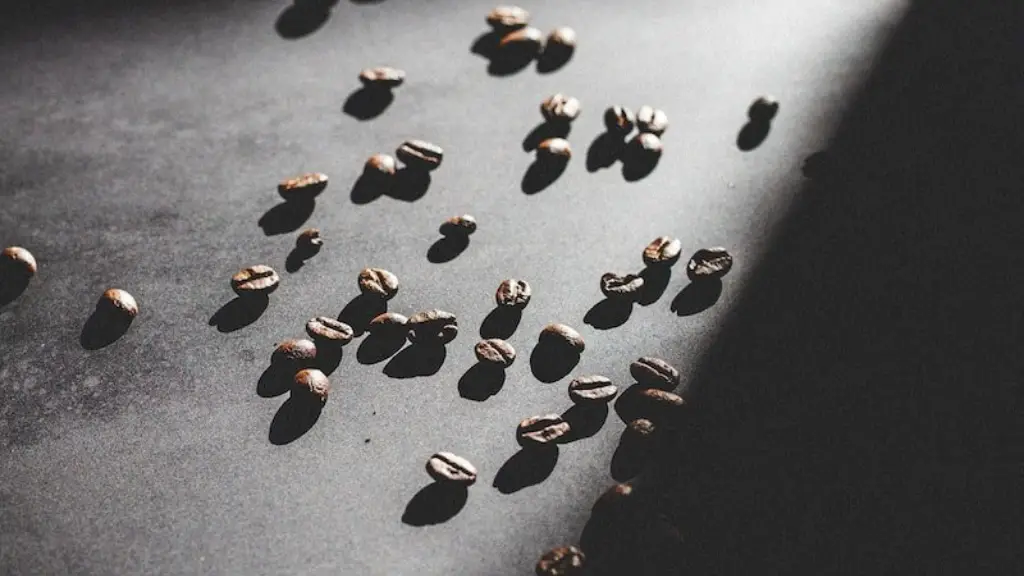Caffeine is a naturally occurring stimulant found in coffee beans, tea leaves, soft drinks, and chocolate, among other beverages and foods. It’s the most widely consumed stimulant drug in the world, with 75% of people reporting regular coffee intake. Therefore, it is important to understand the effects of caffeine on pregnant women, as this is a topic of great debate and discussion.
The potentially harmful effects of caffeine intake during pregnancy are still being debated. The American College of Obstetricians and Gynecologists (ACOG) and the American College of Gynecologic Oncology (ACGO) both advise pregnant women to limit or avoid caffeine. The American Academy of Pediatrics (AAP) advises pregnant women to drink no more than 200 milligrams of caffeine per day. This is equivalent to one cup of coffee, two cups of tea, or two cans of soda. Experts at the National Institute of Child Health and Human Development (NICHD) warn that drinking more than that amount can reduce the growth of the fetus and lead to negative health outcomes.
Caffeine is quickly absorbed by the body, is quickly metabolized, and has a half-life of 3-7 hours. This means that it takes the body three to seven hours to eliminate half of the caffeine from the blood. It’s important to note that caffeine passes through the placenta. This means that it can reach the fetus and put them at risk. Research has linked excessive coffee drinking during pregnancy to greater risks of miscarriage, preterm labor and delivery, low birth weight, and limited fetal growth.
Some studies have shown that drinking up to 200 milligrams of caffeine a day does not significantly increase the risk of birth defects, preterm birth, or other complications. However, it is recommended that pregnant women look for alternative beverages and foods that do not contain caffeine. Drinking water and decaffeinated drinks can be beneficial alternatives, as can eating real food. Additionally, pregnant women should try to limit their intake of caffeine and other stimulants if possible.
It’s also important to understand how caffeine affects the mother. During pregnancy, the body’s metabolism is slower, meaning that caffeine can remain in the body longer and its effects will be stronger. Therefore, drinking too much caffeine can lead to insomnia, restlessness, and even physical discomfort if consumed in high doses.
Health Risks to Unborn Babies
A number of studies have linked high levels of caffeine consumption during pregnancy to various health risks to the unborn baby. These include increased risk of low birthweight, greater risk of respiratory problems, and slower growth in the womb. Drinking more than 500 milligrams of caffeine a day is associated with a greater risk of having a small for gestational age (SGA) baby, meaning that the baby is smaller than normal for its gestational age. As well as a greater likelihood of being born prematurely or having a low birthweight, SGA babies may have a higher rate of complications and health problems.
In addition, caffeine intake during pregnancy has been linked to an increased risk of miscarriage. A study published in the British Medical Journal in 2019found that women who drank more than 200 milligrams of caffeine per day were more than twice as likely to miscarry than those who drank no caffeine. The researchers found that the risk of miscarriage increased with increasing levels of caffeine consumption. They concluded that excessive caffeine consumption during pregnancy is associated with an increased risk of miscarriage.
Caffeine and Breastfeeding
Caffeine can also be passed from mother to baby through breast milk. A 2019 study found that nursing mothers who consumed more than 300 milligrams of caffeine per day had babies with elevated levels of caffeine in their umbilical cord samples. The study also found that breastfed infants whose mothers consumed high levels of caffeine experienced more frequent night waking, longer wakefulness times, and lower sleep efficiency.
Therefore, it is important for nursing mothers to limit their consumption of caffeine. A pharmaceutical study recommended that nursing mothers limit their caffeine consumption to less than 300 milligrams per day, while ACOG and AACOG recommend avoiding caffeine when breastfeeding. Furthermore, it’s important to be aware that caffeine can stay in the body for 10-12 hours and take time to be eliminated. Therefore, to ensure that the baby does not ingest too much caffeine, a nursing mother should limit her consumption to just one cup of coffee a day.
Caffeine and Fertility
Caffeine can also have an impact on fertility. A 2019 review of the scientific literature found that excessive caffeine consumption is associated with a lower likelihood of conception. The researchers found that women who consumed more than 200 milligrams of caffeine a day had a 25% lower chance of conceiving than those who abstained from caffeine.
The evidence also suggests that caffeine can affect the quality of a man’s sperm. A 2010 study found that men who drank more than three cups of coffee a day were nearly three times more likely to have lower sperm counts than those who abstained. The researchers also found that caffeine can reduce sperm motility, or the ability of sperm to swim toward and penetrate an egg.
Caffeine and Hormones
Caffeine has been linked to disruption in some of the hormones involved in reproductive processes. A 2004 study found that high levels of caffeine consumption (over 300 milligrams per day) decreased women’s levels of estradiol and progesterone, two hormones crucial for reproduction. The researchers also found that women who consumed more coffee had higher than normal levels of cortisol, a hormone that is released when the body is under stress.
Caffeine is also known to affect the hormones that regulate appetite. A 2017 study found that caffeine can reduce people’s sensitivity to ghrelin, a hunger hormone, meaning that people may feel hungrier after drinking caffeinated beverages. This can lead to consuming more calories and gaining weight, which can be detrimental to overall health.
Caffeine and Anxiety
Caffeine has been linked to increased levels of anxiety and stress. A 2017 study found that people who consumed more than five cups of coffee a day were more likely to experience feelings of anxiety than those who drank less than two cups. Caffeine can also increase heart rate and blood pressure, which can further lead to feelings of stress and anxiety.
Furthermore, some studies have suggested that caffeine can interfere with sleep and lead to insomnia. This can lead to increased anxiety and even depression. A 2005 study found that caffeine can interact with neurotransmitters such as GABA and glutamate, which can disrupt sleep and lead to anxiety.
Caffeine and Depression
Caffeine can also have an impact on mental health. Depression is one of the most common mental health disorders and has been linked to increased levels of caffeine consumption. A 2019 study found that people who drank more than four cups of coffee per day were more likely to experience depression than those who drank less.
Caffeine can also interfere with the body’s ability to absorb serotonin and dopamine, two of the main neurotransmitters involved in regulating mood. A 2013 study found that people who drank four or more cups of coffee per day had lower levels of serotonin than those who drank less. Low levels of serotonin can lead to feelings of sadness and depression.
Conclusion
In conclusion, it is clear that caffeine can have detrimental health effects on pregnant women. Studies have found that high levels of caffeine consumption may lead to negative health outcomes such as birth defects, preterm birth, miscarriage, and slower growth of the fetus. Furthermore, caffeine can affect fertility, hormone levels, and mental health. Therefore, pregnant women should limit their caffeine intake and opt for alternatives such as water and decaffeinated drinks.




